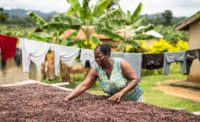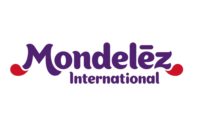Mondelēz releases 2021 Human Rights Due Diligence and Modern Slavery Report
Company notes progress on 2025 ESG goals.

Courtesy of Mondelēz International
Mondelēz International, Inc. has released its annual Human Rights Due Diligence and Modern Slavery report for 2021, demonstrating progress against its 2025 Environmental, Social and Governance (ESG) goals.
The report illustrates progress Mondelēz has made toward its goals to prevent, identify and address potential human rights and modern slavery risks in its own operations and supply chains.
Through its 10-year old signature cocoa sourcing program Cocoa Life, Mondelēz partners with almost 210,000 farmers in over 2,500 communities and has invested over $400 million to support farmers’ livelihoods. In 2021, Mondelēz International more than doubled its progress towards its goal to establish Child Labor Monitoring and Remediation Systems (CLMRS) in all its Cocoa Life communities in West Africa by 2025. The program expanded coverage to 1,548 communities, reaching 61 percent coverage in West Africa.
Preventing and addressing child labor across the West African cocoa sector requires cross-sector collaboration. In 2021, the umbrella International Cocoa Initiative (ICI) – composed of Mondelēz and peer companies, suppliers and NGOs – reached 590,000 households across Cote d’Ivoire and Ghana with systems that help prevent and address child labor.
Mondelēz is also investing CHF 3 million (~$3 million) toward improving children’s access to quality education in cocoa-growing regions. Lack of access to schooling is a key root cause of child labor, which can only be addressed systemically. Mondelēz is investing in two initiatives focused on improving access to education: The Child Learning and Education Facility (CLEF) – which brings together the government of Cote d’Ivoire, peer companies and foundations – as well as the Early Learning and Nutrition (ELAN) initiative, led by the Jacobs Foundation. The goal of these investments is to improve access to and quality of education for 5 million children, reaching 90 percent of rural primary schools in Côte d’Ivoire, through the construction of 2,500 classrooms and proven interventions to improve teaching quality.
Supporting human rights in sourcing additional commodities
Along with its progress in supporting human rights across the cocoa supply chain, the 2021 report demonstrates Mondelēz International’s progress in promoting human rights due diligence practices in the sourcing of additional commodities such as palm oil and hazelnuts.
To support due diligence practices in the palm oil sector, Mondelēz has joined forces with peers in the CGF Human Rights Coalition, the Fair Labor Association, and the International Organization for Migration to deploy and test systems at each stage of the supply chain.
Additionally, in 2021, Mondelēz International joined CAOBISCO’s partnership with the International Labor Organization to help combat child labor in seasonal harvesting of hazelnuts in Turkey. After this group held awareness-raising sessions with seasonal workers and their families, orchard owners and labor intermediaries, it reported that 1,456 children were removed or prevented from engaging in harvesting activities across the Black Sea region.
Supporting a living wage
In 2021, Mondelēz International joined IDH (The Sustainable Trade Initiative) Living Wage Roadmap to help advance living wages in global supply chains and confirmed a continued commitment to pay its employees a living wage. This builds upon the company’s long-standing focus on promoting human rights with the introduction of a dedicated Human Rights Policy aligned with the United Nations Human Rights Guiding Principles.
“Through our flagship ingredient sourcing program Cocoa Life, we are learning from our decade of experience on the ground in cocoa communities about the importance of living income,” said Laura Stein, executive vice president for corporate & legal affairs and general counsel, Mondelēz International. “Building on our ongoing focus on promoting human rights, we joined the Sustainable Trade Initiative (IDH) Living Wage roadmap to help advance living wage and income in global supply chains. We will also work with our suppliers with the goal of having all our strategic suppliers engaged on a living wage roadmap by 2030.”
Mondelēz is also working with peers in the AIM Progress Living Wage working group to support the business’ goal of having all strategic suppliers engaged on a living wage roadmap by 2030. Additionally, as part of its continued membership in the Human Rights Coalition of Action within the Consumer Goods Forum, the company joined the Human Rights Due Diligence Project in 2021. This project is key in supporting Mondelēz’s goals to continuously strengthen its human rights due diligence systems and prevent risks, including forced labor, across its own operations and supply chain.
Recognizing the systemic nature of human rights issues in global supply chains and the need for all actors along the supply chain to work together to address them, Mondelēz continues to advocate in favor of mandatory human rights due diligence legislation. The company supports legislative efforts aimed at enabling practical, proactive, ongoing human rights due diligence, and generally welcomes the EU Commission’s proposed Corporate Sustainability Due Diligence directive (issued in February 2022), which will require companies to identify and address human rights and environmental risks in their value chain.
The Human Rights Due Diligence and Modern Slavery report is part of Mondelēz’s ongoing evaluation and review of best practices in enhancing its approach to respecting human rights. To identify human rights risk, the company is committed to undertaking practical, proactive due diligence in its owned operations and seeks to work with suppliers who share the same level of commitment. The company takes action to mitigate identified risks, prioritizes areas of focus through signature sustainable sourcing programs, and advocates for systemic solutions through public-private collaboration.
Looking for a reprint of this article?
From high-res PDFs to custom plaques, order your copy today!







